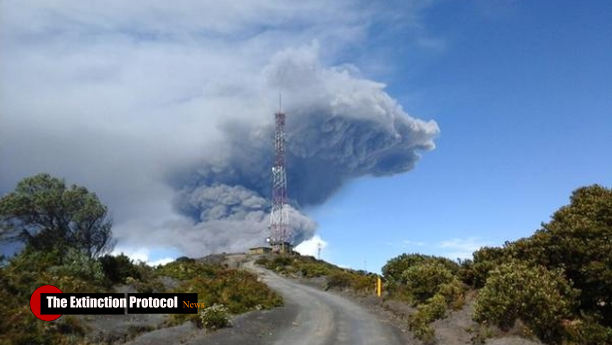Fleet of Iranian ships heading to Yemen turns around after being tracked by US warships
Now Playing Iranian warships arrive nears the coast of Yemen
The sources said the nine-ship convoy is south of Salalah, Oman, and now headed northeast in the Arabian Sea in the direction of home. The ships, which include seven freighters and two frigates, had sailed southwest along the coast of Yemen heading in the direction of Aden and the entrance to the Red Sea. They appeared to drop anchor in the north Arabian Sea, after the USS Theodore Roosevelt, the USS Normandy and a half-dozen other American ships arrived in the Arabian Sea on Monday, and U.S. officials said that they could intercept the convoy.
The USS Theodore Roosevelt, a 100,000-ton nuclear-powered aircraft carrier known as the “Big Stick” and her escort, the USS Normandy, a guided missile cruiser, have been shadowing the convoy for the past few days, the sources said.
Fighter jets taking off from the carrier have been relaying the convoy’s location to the U.S. Navy's higher command since the start of the week.
The Iranian Navy ships are characterized as "smaller than destroyers," a Pentagon official with knowledge of the convoy said Tuesday. Asked what type of weapons the freighters are carrying, one Pentagon official said, "they are bigger than small arms."
The reversal was welcomed by Pentagon officials, but they expressed caution saying, “this isn’t over yet,” and insisted Roosevelt will maintain observation on the convoy.
Iran backs the Houthi rebels, who chased the Yemeni president from Sanaa and are fighting for control of the Gulf nation. Warships from Saudi Arabia and Egypt, who back Yemeni President Abd Rabbuh Mansur Hadi, are positioned to the southwest of the convoy, forming a blockade of the Gulf of Aden and the port city of Aden.
Western governments and Sunni Arab countries say the Houthis get their arms from Iran. Tehran and the rebels deny that, although Iran has provided political and humanitarian support to the Shiite group.
The U.S. also has been providing logistical and intelligence support to the Saudi-led coalition launching airstrikes against the Houthis. That air campaign is now in its fourth week, and the U.S. also has begun refueling coalition aircraft involved in the conflict.
The campaign meant to halt the rebel power grab and help return to office Hadi, a close U.S. ally who fled Yemen.
The defiant Shiite rebels pressed their offensive in the country's south on Thursday, apparently ignoring an overture from Saudi Arabia earlier this week, while the kingdom's warplanes continued to target their positions, officials said.
The rebels’ prized goal -- the port city of Aden -- remained an elusive one, in part thanks to the Saudi-led airstrikes.
Meanwhile, Pakistan's top leaders, including Prime Minister Nawaz Sharif and army chief Gen. Raheel Sharif, arrived Thursday in Saudi Arabia to push for negotiations in the Yemen conflict. The two are to meet with King Salman to discuss the crisis, according to Pakisitan's Foreign Office spokeswoman Tasnim Aslam.
Both predominantly Sunni majority countries, Saudi Arabia and Pakistan are close allies, and Islamabad has supported the Saudi-led coalition, though it declined to send troops, warplanes and warships to join it.
The kingdom and Gulf Arab allies launched the airstrikes March 26, trying to crush the Houthis and allied military units loyal to ousted President Ali Abdullah Saleh.
The Saudis believe the rebels are tools for Iran to take control of Yemen.
Loud explosions shook the cities of Taiz and Ibb in western Yemen on Thursday, as well as Aden when coalition warplanes bombed the rebels and their allies, witnesses said.
Residents also said the Houthis and Saleh's forces were attacking the city of Dhale, one of the southern gateways to Aden, with random shelling.
All Yemeni officials and witnesses spoke to The Associated Press on condition of anonymity because they were not authorized to talk to the media or feared for their safety amid the fighting.The Associated Press contributed to this report.


 MONTGOMERY, Ala. – The Alabama Senate was opened with a prayer on Tuesday that sought forgiveness for the nation’s embrace of sexual perversion.
MONTGOMERY, Ala. – The Alabama Senate was opened with a prayer on Tuesday that sought forgiveness for the nation’s embrace of sexual perversion.